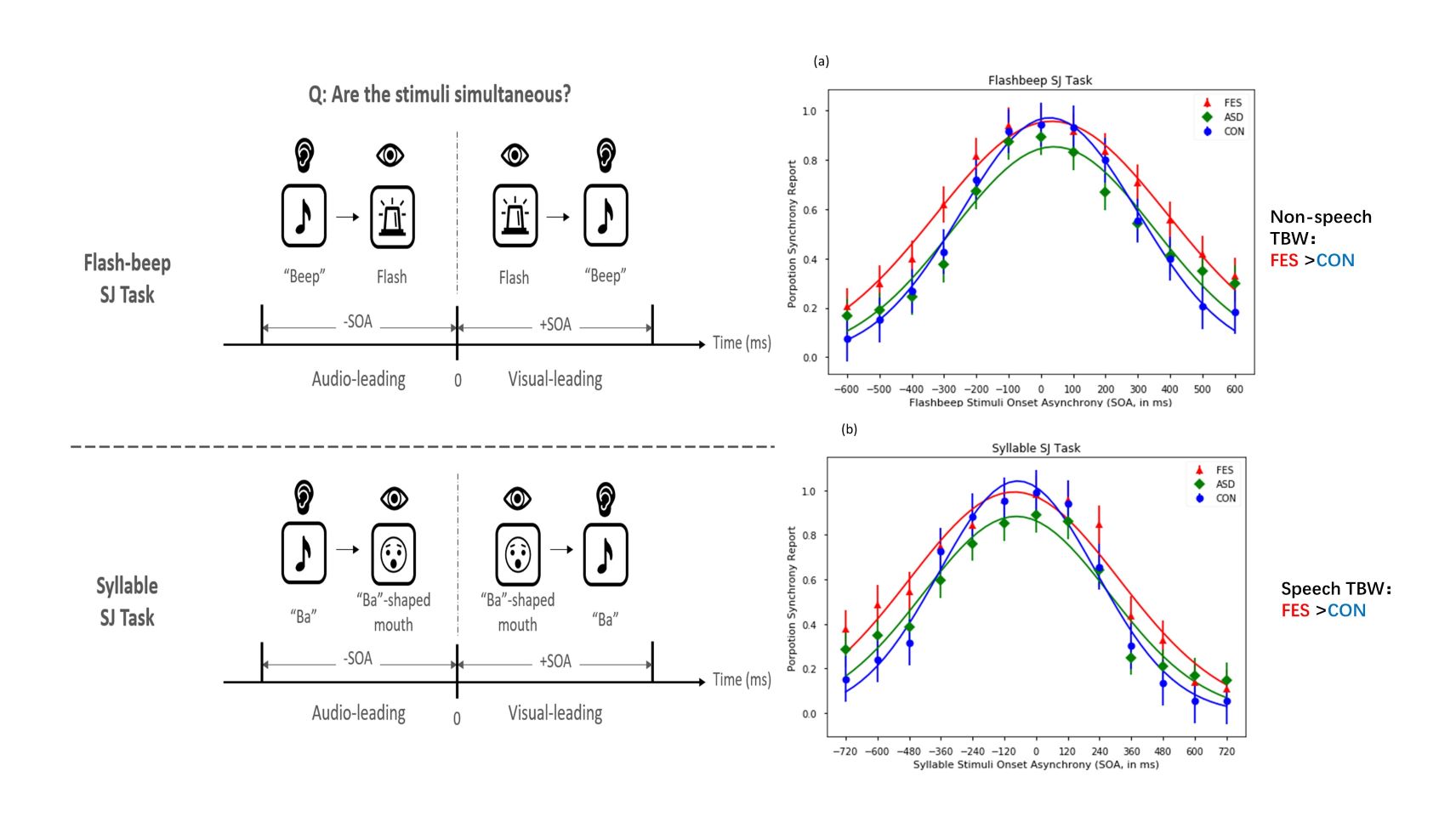
Schizophrenia and autism spectrum disorder (ASD) are both neurodevelopmental disorders with altered sensory processing. Widened temporal binding window signifies reduced sensitivity to detect stimulus asynchrony, and may be a shared feature in schizophrenia and ASD. Few studies directly compared audiovisual temporal processing ability in the two disorders.
Dr. Raymond Chan and his team from the Institute of Psychology of the Chinese Academy of Sciences have found that generalized difficulties in temporal processing in early-onset schizophrenia, whilst ASD was associated with temporal processing differences affecting only speech stimuli. However, previously, samples of the two disorders were recruited separately, and comparison between the two disorders in the temporal binding window was only conducted in a post-hoc manner, and the results were confounded by the unmatched demographics of the two clinical groups.
Considering the drastic developmental changes of temporal binding window during childhood and adolescence, whether the differences of temporal sensory processing in patients with ASD and patients with schizophrenia would change as they reach adulthood is of great research interest.
In order to clarify these unresolved issues, Dr. Raymond Chan's team and his collaborators have conducted a study focusing on adult patients. They recruited 43 adult patients with first-episode schizophrenia (FES), 35 average intelligent and verbally-fluent adult patients with high-functioning ASD and 48 controls.
They administered two unisensory Temporal Order Judgment (TOJ) tasks within visual or auditory modalities, and two audiovisual Simultaneity Judgement tasks with flash-beeps and videos of syllable utterance as stimuli.
According to the researchers, participants with FES exhibited widened temporal binding window affecting both speech and non-speech processing, which were not attributable to altered unisensory sensory acuity because they had normal visual and auditory TOJ thresholds. However, adults with ASD exhibited intact unisensory and audiovisual temporal processing.
Taken together, these findings suggested that widened temporal binding window is associated with schizophrenia regardless age and illness stage. The altered audiovisual temporal processing in ASD may ameliorate after reaching adulthood.
This study was supported by the National Science Foundation China, the Philip K. H. Wong Foundation, and the HKU Seed Fund for Basic Research for New Staff.

The results of Audiovisual Simultaneity Judgement tasks in the three groups. (Image by Dr. Raymond Chan)

86-10-68597521 (day)
86-10-68597289 (night)

52 Sanlihe Rd., Xicheng District,
Beijing, China (100864)

